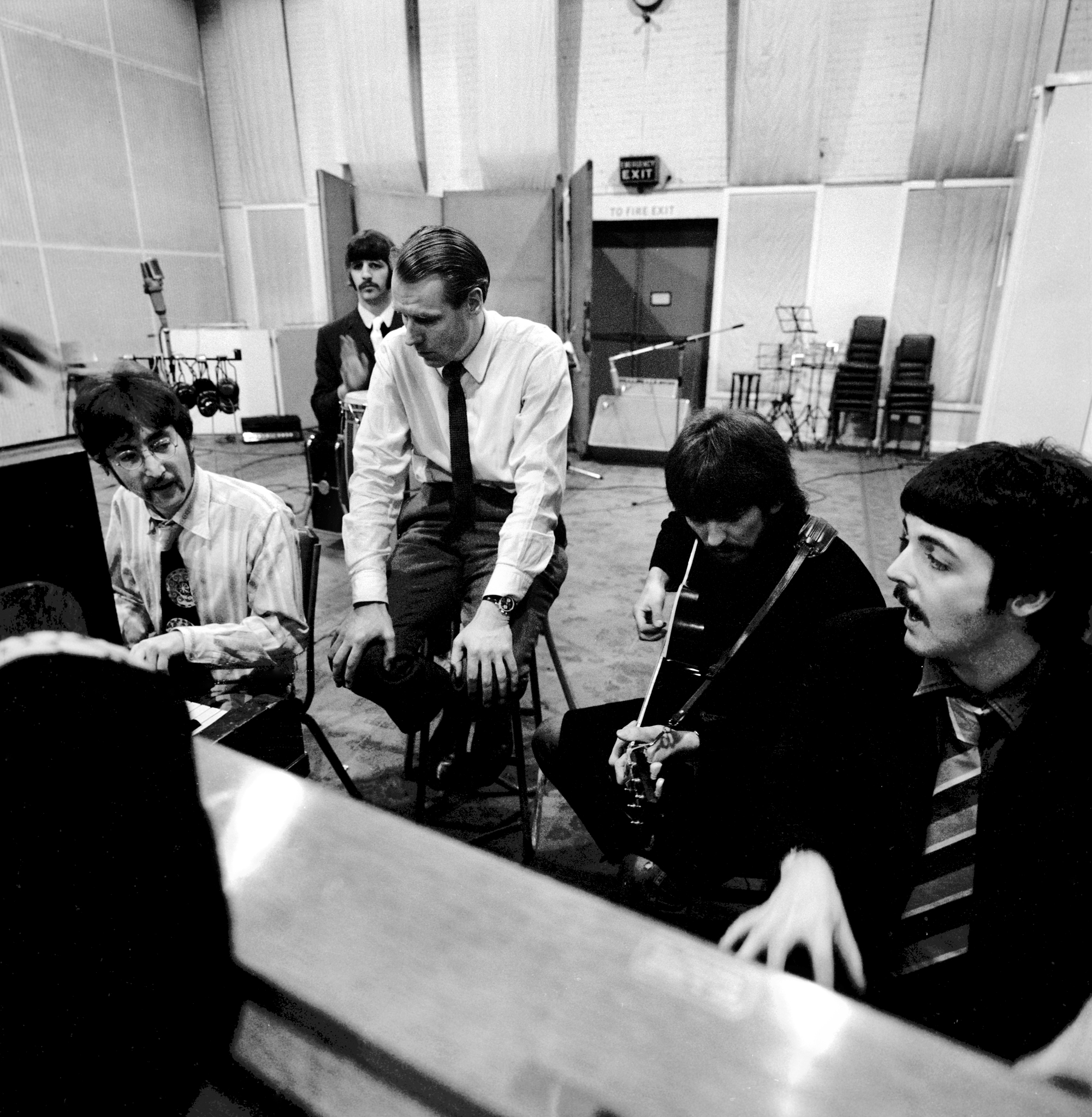These questions were submitted to Sir George via email on behalf of the Inquirer, but unfortunately the answers showed up a day after the story ran. But as we often find ourselves saying ’round the Phawker water cooler, better late than never…
PHAWKER: I am sorry to learn that a hearing problem makes a phone interview impossible. I am a HUGE fan, and would have savoured the sound of your proper English accent. Can you tell me about your hearing condition — I realize it’s a bit personal, but it is a bit like Beethoven — and how did it impact the way you worked on the Love album, which sounds FANTASTIC by the way.
fan, and would have savoured the sound of your proper English accent. Can you tell me about your hearing condition — I realize it’s a bit personal, but it is a bit like Beethoven — and how did it impact the way you worked on the Love album, which sounds FANTASTIC by the way.
GEORGE MARTIN: Thank you for your comments on “Love.” My hearing has been slowly deteriorating for a number of years, and now with old age it is getting worse. The main problem is not with music but with speech, which makes phone calls so tedious. As you know, hearing gets worse by losing the upper frequencies, and the critical level for speech is between 2 and 3k. Music is still OK at those frequencies, one just is aware that things like finger cymbals and the upper notes of piccolos disappear. Poor Beethoven had a rotten time, but I am coping. It is not going to get better!
PHAWKER: Were you familiar with the concept of a mash-up prior to work on this project? What are your thoughts on what they add to the evolution of pop music, something you have had a significant impact on over the years.
GEORGE MARTIN: I have heard some mash-ups, and I do not call our work that. Mash-ups take a click track and add loops and odd items to make another work, mixing different artiste?s songs. We were careful to keep the performances intact. Ringo never played to a click track in his life, and it shows in the warmth of his playing. Of course, all the combinations were between the Beatles themselves, and the survivors loved everything we did.
PHAWKER: Something I’ve noticed from Beatles documentaries in recent years is that as you’ve gotten older, you\r hair has gotten almost as long as John Lennon’s circa the White Album but getting back to the hair. I realize that you obviously bonded with the Beatles musically back in the day, but you were definitely of the ‘straight’ world and they were of the ‘counterculture,’ at least in appearance if not general worldview. My question is do you think in the intervening years that your worldview has in many ways come to match more closely the Beatles mindset back in the ’60s. That you’ve more or less become a flower child in your Golden Years, minus the drugs, but not the freedom of imagination?
GEORGE MARTIN: Forget the hair; I wear it short, and I have never subscribed to fashion, just my own comfort with myself. I don’t think I have changed much. I still think drugs are the number one enemy.
PHAWKER: Explain in layman’s terms why taking off the compression freed up the sound of the basic tracks. Also, can you describe the place and the circumstances under which those old master tapes are stored. Might there be more re-mix Beatles albums down the line?
GEORGE MARTIN: Reducing compression gives less impact but frees the sound so that it is more like a live performance. In a show this is a vital component and works very well in Las Vegas. The tapes were kept at Abbey Road and they have a special warder who cares for them — very well. His name is Allan Rouse. But EMI did not bother to make good transfers to hard disc and we have done that for them. It was obviously necessary for our project. As to the future, who knows? It is entirely up to EMI and Apple. They will decide.
